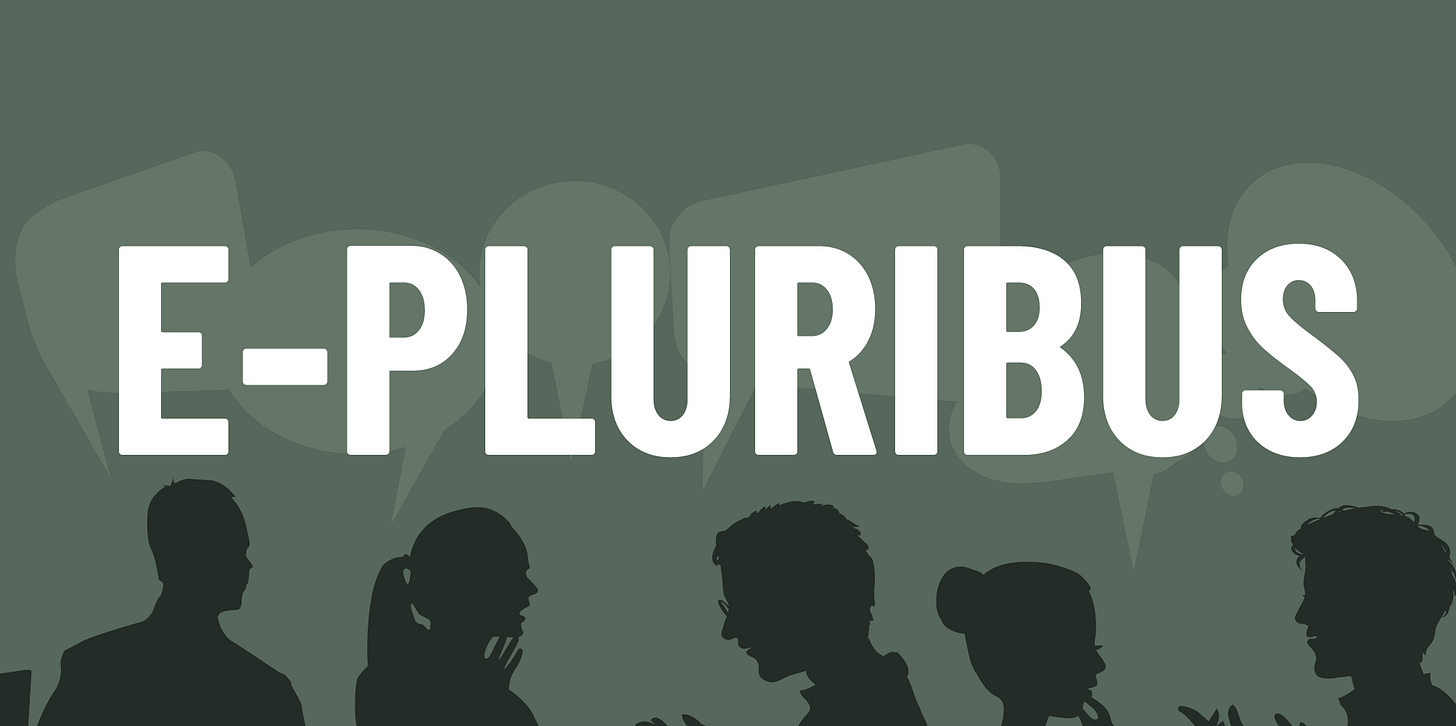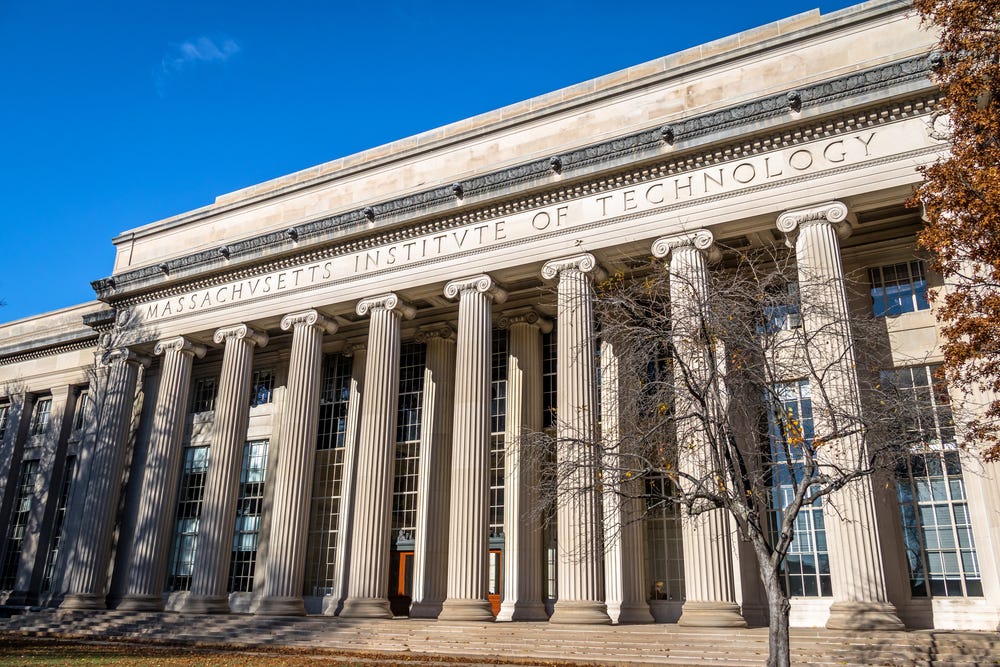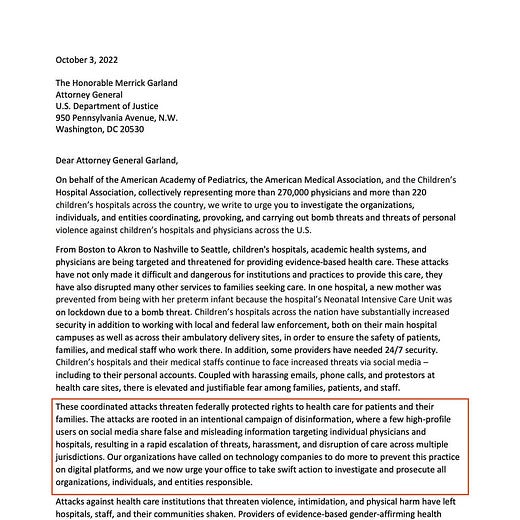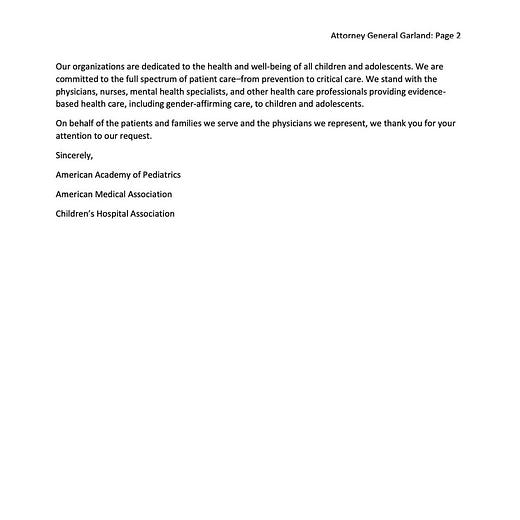E-Pluribus | October 4, 2022
Fixing higher education, parents are the latest target in the culture wars, and a positive sign for free speech at one university.
A round-up of the latest and best writing and musings on the rise of illiberalism in the public discourse:
Tim Shampling: How to Fix What is Broken in Academia
On Monday, we featured (item #2) Samuel Abrams at National Review on why Free Speech on Campus Is Not a Lost Cause. This month on his Substack Year Zero, Wesley Yang has surrendered his platform to the pseudonymous Tim Shampling’s “thought experiment” on how to make sure higher education does not end up a lost cause.
It is at the federal level, whenever conservative regain control of it, that the greatest opportunities will lie. In general, conservatives must become as active in using the investigative authorities of Congress, the Department of Justice, and the Department of Education to ferret out and punish wrongdoing as their progressives counter parts have been in shielding it from scrutiny. Universities should be made to fear a Republican administration as much or more than they thrill at a Democratic one. And it would not be impossible to strike some fear into these places, however arrogant they seem at present, if only Republicans knew which rocks to look under and would sustain the will to keep turning them over. Any professor who is honest will tell you, a great amount of conduct of dubious legality, especially with regard to hiring practices, is right there over email.
But until such time as they regain the federal government, conservatives have their redoubt in the statehouses and governor’s mansions.
[ . . . ]
First, all Republican state legislatures should proceed further in the direction, along which they’re already walking, of dismantling licensing and degree requirements. Fewer jobs overall should require a college degree. As late as 1960 only 8% of the country went to college; we were not then a notably less competent nation. Employers should be forbidden from requiring a college degree for any job that did not require one in, say, 1985. Likewise, the credential demands for promotion and salary increases in public sector jobs – which send students running to MPA, MSW, and worst of all M.Ed programs – should be eliminated.
[ . . . ]
Second, traditional academic freedom and free speech protections need to be given real teeth. The first step toward wisdom on these questions is to dispel some of the libertarian fantasias that have set government and liberty in a zero-sum relationship. An ideal of free speech requires the state to use its power to restrain corporations, mobs, one’s neighbors, etc., from harming individuals for what they say. Only the state can guarantee this kind of freedom.
[ . . . ]
To begin, states should pass legislation that mandates a zero-tolerance policy for campus disruptions and “heckler’s veto” activity in all educational and deliberative contexts. It is not too much to expel students or to fire faculty/staff who prevent a class from taking place or a speaker from being heard; many universities have (albeit with carveouts for famous liberal professors, unfortunately) a one-strike rule for plagiarism or fraud (stealing/falsifying lab results, misconduct in treatment of experimental subjects, etc.), on the grounds that such misconduct is inimical to the university’s mission.
Read the whole thing.
David French: When Culture Wars Go Way Too Far
David French regularly takes fire from both sides of the ideological divide and his latest for The Dispatch is likely to be received in a similar way. While French finds California’s recent law allowing children to receive transgender surgery without parental consent or even notification troubling, he also faults Texas for interfering with parents who choose such surgery for their children, relying on medical advice. French’s juxtaposition of Texas versus California illustrates why parental rights and gender issues are two of the most volatile flashpoints in American society today.
[T]he culture war is escalating to disrupt the bond between parents and children.
On Thursday California governor Gavin Newsom signed SB 107, a bill the Los Angeles Times said “aims to protect transgender youths and their families from bans against gender-affirming care.” Well, that’s one way to put it. Another is that the bill permits to transgender youth who enter California to obtain life-altering medical interventions without their parents’ knowledge or consent.
The bill makes for complicated reading, but the bottom line is clear—a child can cross state lines to obtain “gender-affirming health care or gender-affirming mental health care” and obtain immediate protection from efforts from parents to bring their child home.
[ . . . ]
This wouldn’t be 2022 if the story ran only one way. Just as California has escalated the culture wars by potentially severing the parent/child relationship when parents object to various methods of gender reassignment, Texas now threatens to break families when parents consent to those same treatments.
In February Texas attorney general Ken Paxton wrote to Texas representative Matt Krause and argued that certain “sex-change” or “gender-reassignment” procedures, including various surgical procedures and the prescription of puberty blockers “can legally constitute child abuse under several provisions” of Texas law.
Texas governor Greg Abbott followed Paxton’s letter with his own directive, stating that “Texas law imposes a duty on [the Department of Family and Protective Services] to investigate the parents of a child who is subjected to these abusive gender-transitioning procedures.” In response, DFPS commenced investigations of at least nine Texas families.
The Texas directives and DFPS investigations are currently subject to litigation, and I have little doubt that California will face its own lawsuits. But this is where we are now. It’s not enough to disagree over important matters. Now the culture war requires a direct attack on the most fundamental American liberty interests.
Read it all here.
James Freeman: MIT Asks Its Faculty to Endorse Free Speech
Last fall, MIT damaged its reputation by cancelling an appearance by University of Chicago geophysicist Dorian Abbot because of his political and social views. Now James Freeman reports in The Wall Street Journal that a panel established by the administration at MIT offers hope that the school is not a lost cause when it comes to free expression.
The hopeful news is that after last year’s canceled lecture, many members of the MIT community were not about to give up on free expression. A working group created by the school’s leadership has recently released a report on the subject and is asking faculty to endorse some very sensible ideas:
“Free expression is a necessary, though not sufficient, condition of a diverse and inclusive community. We cannot have a truly free community of expression if some perspectives can be heard and others cannot. Diversity of thought is an essential ingredient of academic excellence.
“Free expression promotes creativity by affirming the ability to exchange ideas without constraints. It not only facilitates individual autonomy and self-fulfillment, it provides for participation in collective decision-making and is essential to the search for truth and justice.
“Free expression is enhanced by the doctrine of academic freedom, which protects both intramural and extramural expression without institutional censorship or discipline. Academic freedom promotes scholarly rigor and the testing of ideas by protecting research, publication, and teaching from interference...
“A commitment to free expression includes hearing and hosting speakers, including those whose views or opinions may not be shared by many members of the MIT community and may be harmful to some. This commitment includes the freedom to criticize and peacefully protest speakers to whom one may object, but it does not extend to suppressing or restricting such speakers from expressing their views.”
Read it all.
Around Twitter
As the American Medical Association launches a pressure campaign against medical “disinformation,” Christopher Rufo and Yale professor Jason Stanley may not agree on much, but they do see eye to eye when it comes to freedom of the press:
Wesley Yang is fed up with the demonization of those who oppose or question radical transgender approaches for children:
And finally, New York University caves to a mediocre student fantasy: getting a hard teacher fired.












